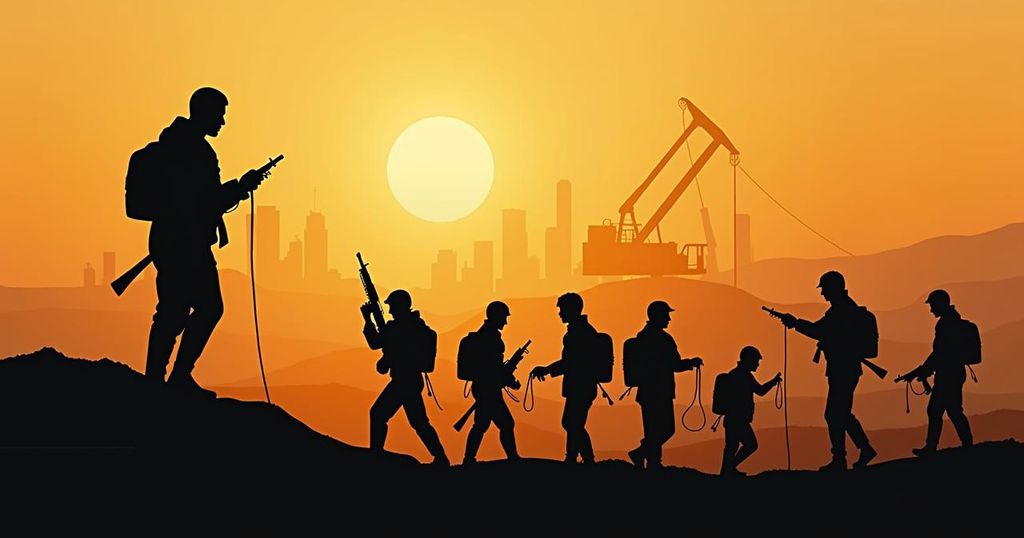King Mohammed VI Advocates Continuation of Relief Aid Following Al-Haouz Earthquake
King Mohammed VI of Morocco has called for the government to continue providing relief aid for victims of the Al-Haouz earthquake, which killed nearly 3,000 people. The government announced an extension of assistance for families whose homes were destroyed, amounting to 2.5 billion dirhams in budget allocations. The plan includes financial support for reconstruction, agriculture, and infrastructure to assist the recovery of affected regions.
In a recent address, King Mohammed VI of Morocco has emphasized the necessity for the government to sustain the provision of relief aid for the victims of the devastating Al-Haouz earthquake. This tragic event, which occurred on September 8, 2022, claimed the lives of 2,946 individuals and left many others displaced. In response to these ongoing challenges, the monarchy alongside the Moroccan government has resolved to extend economic assistance to over 5,000 families whose homes were severely impacted. As communicated in an official statement by Prime Minister Aziz Akhannouch, this initiative mandates governmental agencies to complete the reconstruction of the residences affected by the earthquake. This extension follows the completion of an initial relief plan offering 2,500 dirhams per month to those families whose homes were damaged or destroyed, moving now to a new phase characterized by a budget increase to 2.5 billion dirhams. Families whose homes were partially damaged will be eligible for 80,000 dirhams, whereas those with completely destroyed residences can receive 140,000 dirhams, as per royal directives. During a press conference, Prime Minister Akhannouch articulated the King’s deep concern for the well-being of the affected communities. The inter-ministerial commission has begun evaluating the damage and outlining a comprehensive recovery program under the monarch’s guidance. This program seeks to restore vital infrastructure and provide much-needed support to the affected populations across several provinces, including Tata, Errachidia, Midelt, Ouarzazate, and Tinghir. Additionally, the scheme encompasses agricultural recovery, targeting the repair of small and medium hydraulic systems and offering support to livestock farmers. The Finance and Economic Development Commission will engage in discussions concerning the project’s financing, emphasizing effective resource allocation across ministries. Meetings are also scheduled with the interior commission to formulate action plans for community rehabilitations, focusing on security and urban planning. Other discussions will emphasize the repair of critical infrastructure such as roads, bridges, and irrigation systems, essential for the region’s recovery. In tandem with these efforts, measures will be put in place to bolster agriculture, essential for the local economy. This multilateral approach underscores not only the restoration of housing and infrastructure but highlights the remarkable psychological support exhibited by Moroccan society as a whole, reflecting national solidarity and compassion during these trying times.
The Al-Haouz earthquake represents a significant humanitarian disaster in Morocco, with thousands of families losing their homes and livelihoods. The government’s sustained efforts to allocate resources for recovery and reconstruction underscore the ongoing impact of this natural disaster. These initiatives demonstrate the Moroccan monarchy’s commitment to rebuilding affected communities and highlight the collective societal responses to such tragedies. The multi-sectoral approach involving various ministries reflects a comprehensive strategy aimed at holistic recovery and long-term support for the regions hit hardest by the earthquake.
The Moroccan government’s decision to extend earthquake relief aid illustrates a profound commitment to support families affected by the Al-Haouz tragedy. With substantial financial aid allocated for housing repairs and infrastructure restoration, alongside agricultural support efforts, the response aims to rebuild and revitalize the impacted communities. This initiative also highlights the solidarity and resilience of the Moroccan people, showcasing their unwavering support for one another in times of crisis.
Original Source: www.atalayar.com




Post Comment